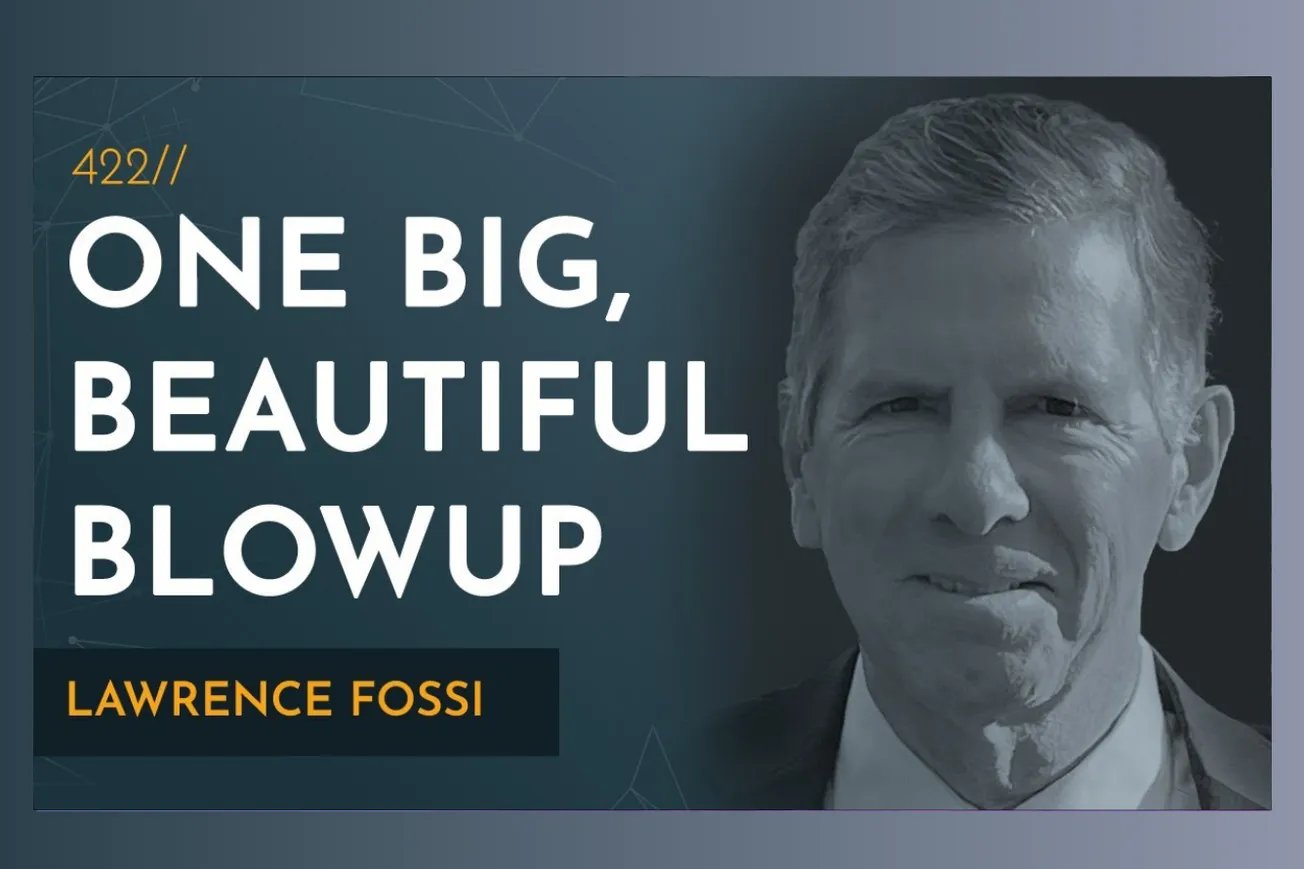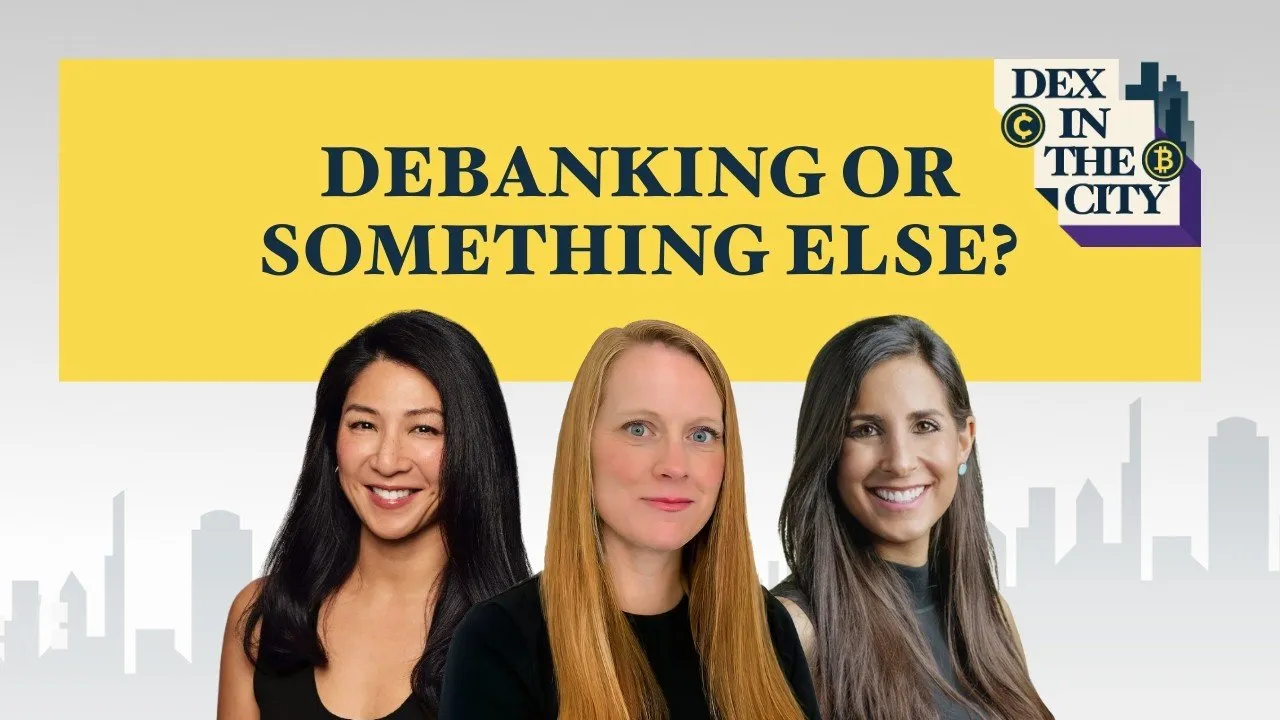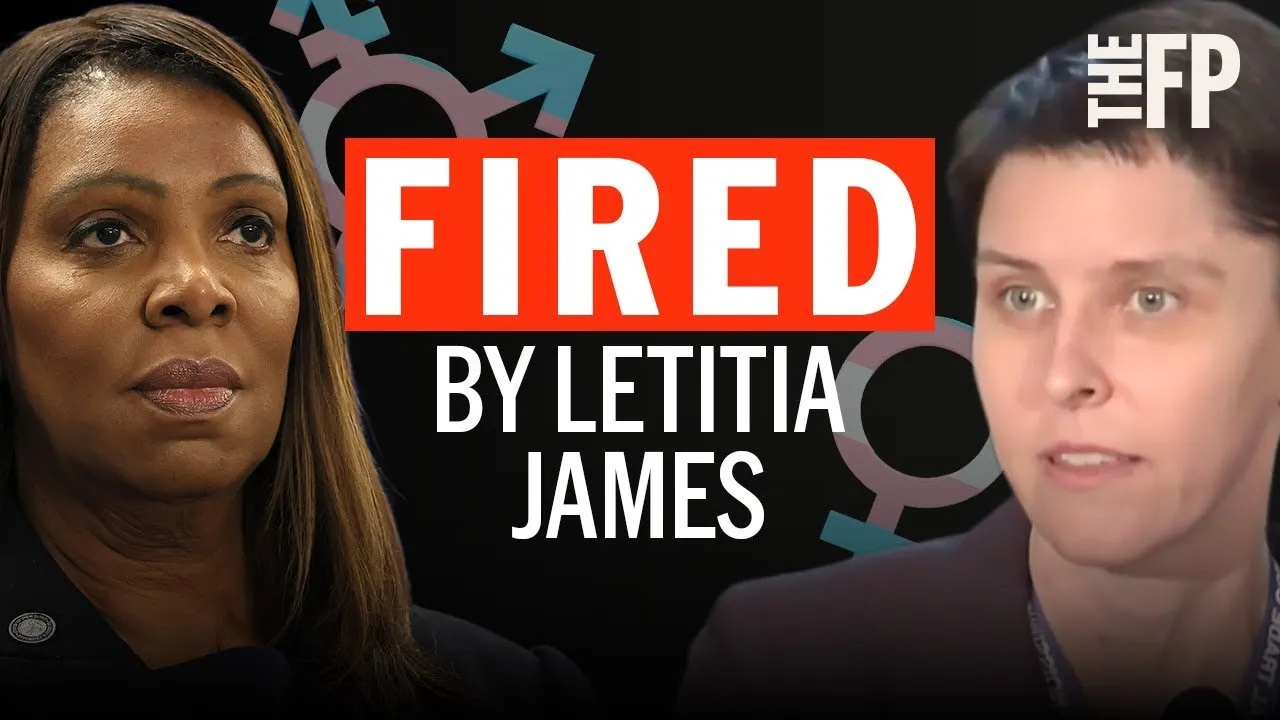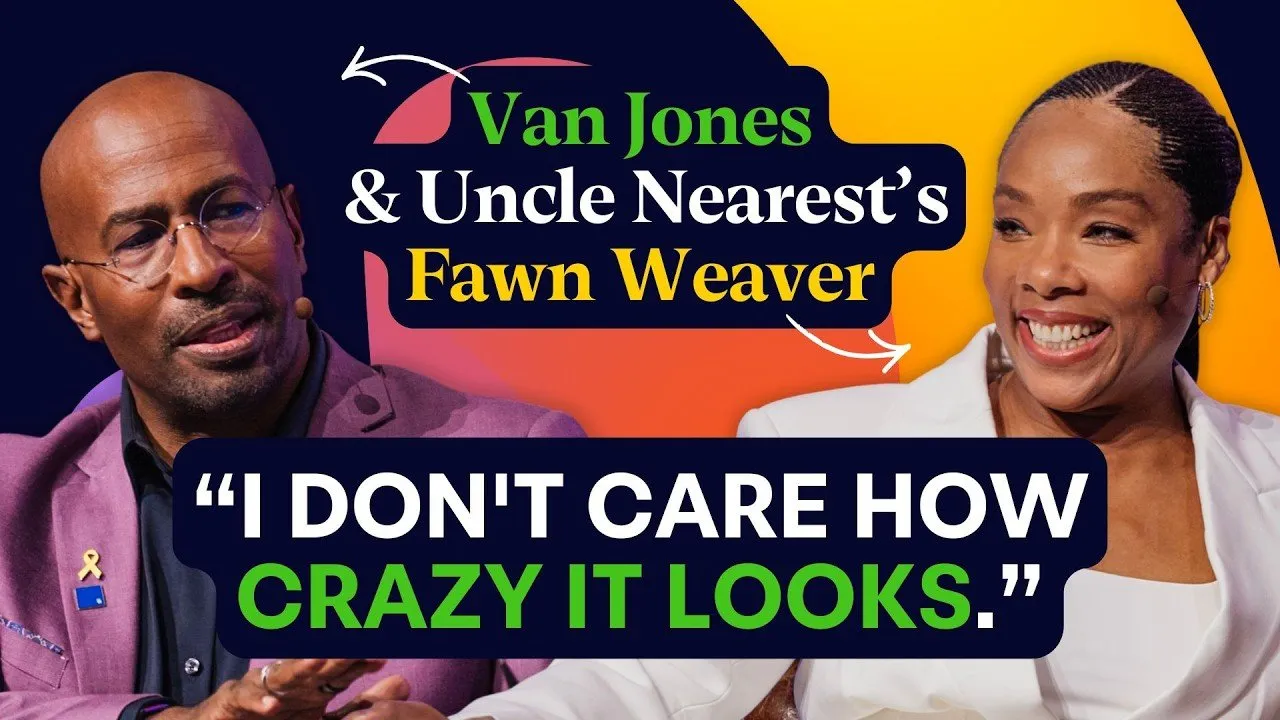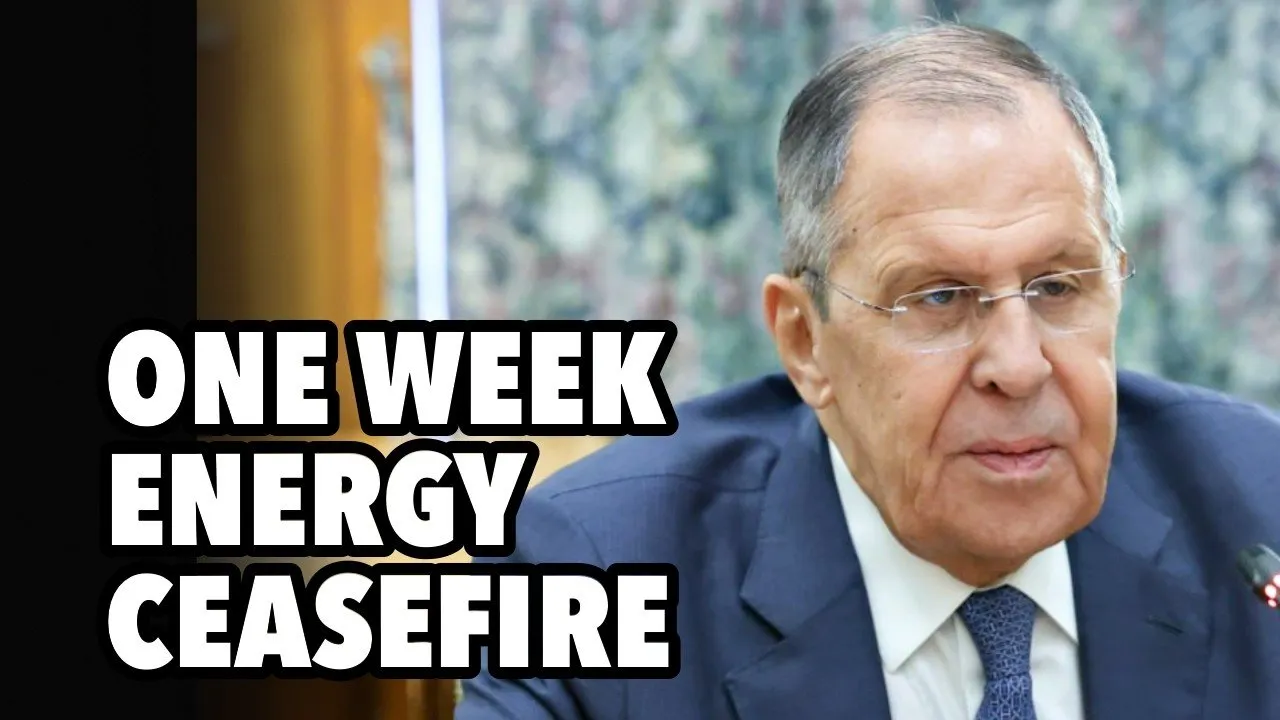Table of Contents
Lawrence Fossi, longtime Musk critic and former trial attorney, analyzes the inevitable clash between two "oxygen-consuming" personalities and what their public feud reveals about America's deepening institutional crisis.
Key Takeaways
- The Trump-Musk conflict was predictable because both personalities are too narcissistic and "oxygen-consuming" to coexist in the same political coalition
- Musk's wealth derives primarily from Tesla stock, making him vulnerable if Trump retaliates against his government contracts for SpaceX and Starlink
- America's debt crisis requires entitlement reform that no politician will tackle, making fiscal collapse increasingly inevitable regardless of leadership
- The Supreme Court remains the only functional branch of government, carefully navigating political pressure while preserving constitutional principles
- Foreign policy consensus has collapsed, leaving America unable to maintain global leadership during domestic political instability
- Both parties have become captured by their most radical elements due to gerrymandering and primary systems that reward extremism
- The breakdown of civic virtue and institutional respect threatens America's foundational democratic principles
- Social media has accelerated political polarization while destroying traditional gatekeeping mechanisms that once moderated public discourse
Timeline Overview
00:00–18:30 — Setting the Stage: Grant Williams and Demetri Kofinas introduce the Trump-Musk fallout context, discussing their observations of New York City's decline and America's broader institutional challenges.
18:30–35:45 — The Musk-Trump Dynamic: Lawrence Fossi analyzes why the conflict was inevitable, examining both personalities' narcissistic traits and Musk's political evolution from supporting Hillary Clinton to embracing Trump.
35:45–52:20 — Institutional Decay and Constitutional Crisis: Discussion of how politics became a career rather than public service, the corrupting influence of wealth concentration, and threats to constitutional governance.
52:20–68:15 — The Debt Crisis Reality: Analysis of America's fiscal trajectory, why entitlement reform is politically impossible, and how mathematical realities will eventually force painful adjustments regardless of political preferences.
68:15–85:30 — Judicial Branch Under Pressure: Examination of Supreme Court dynamics, political attacks from both parties, and how the judiciary maintains independence while navigating unprecedented political pressure.
85:30–102:45 — Foreign Policy Implications: How domestic political dysfunction undermines America's ability to maintain global leadership and respond to international challenges like China and Russia.
102:45–118:20 — The Path Forward: Discussion of potential solutions, the collapse of political coalitions, and whether America can produce unifying leadership in an era of extreme polarization.
The Inevitable Collision
- Lawrence Fossi predicted the Trump-Musk fallout would occur within two years, though it happened even faster than expected, because both personalities are fundamentally incompatible. "They're both narcissists. They're both very... their personalities are just both too oxygen consuming to be in the same sort of coalition together."
- Musk's political journey from supporting Hillary Clinton in 2016 to embracing Trump represents a radical transformation driven largely by his Twitter acquisition and the echo chamber it created. The platform became "this very weird alt-right sewer" where Musk basked in adoration from supporters who saw him as the "savior of free speech."
- The conflict reveals how quickly political allegiances can shift in America's personality-driven politics. Musk's supporters on the left abandoned him when he moved right, while his new conservative supporters may now abandon him after his clash with Trump, leaving him politically homeless.
- Tesla's brand has become highly politicized, with the typical buyer evolving from "a liberal, a progressive, well-to-do progressive who could afford a Model S" to cyber truck owners who represent "a very different type of person." This politicization has damaged the business fundamentally.
- Musk's deletion of inflammatory tweets about starting a third party and his Epstein-Trump connections suggests he realizes he may have crossed a line that puts him in danger of becoming "Mikhail Khodorkovsky," the Russian oligarch imprisoned by Putin for unsanctioned political activities.
- The Twitter poll about starting a third party (which allegedly showed 80-20 support) demonstrates how Musk has used his platform for validation, but may have trapped himself into positions that alienate both major political parties and their leadership.
The Wealth Vulnerability Factor
- Musk's fortune depends primarily on Tesla stock, which is "ludicrously overvalued" and no longer justifiable based on auto sales alone. The company has "staked everything on this robo taxi business and on this Optimus robot" which Fossi considers unrealistic propositions.
- SpaceX's profitability remains questionable despite government contracts, while Starlink operates at a loss. "Elon Musk's real wealth is Tesla and that is very illiquid," making him vulnerable to market sentiment shifts that could dramatically reduce his net worth and political influence.
- Trump may realize that Musk's wealth concentration in Tesla stock creates leverage opportunities. A collapse in Tesla's share price as both left and right supporters abandon the brand could quickly diminish Musk's political relevance and ability to fund opposition activities.
- Steve Bannon's calls for Trump to nationalize SpaceX and Starlink represent extreme scenarios that would devastate Musk financially. While outright nationalization seems unlikely due to market consequences, "Musk's industries have already been nationalized" through their dependence on government contracts.
- The symbiotic relationship between Musk's wealth and government favor means that losing Trump's support could create a cascade of problems across his business empire, particularly if regulatory agencies or contract awards begin favoring competitors.
- Musk's potential attempt to start a third party could make him an enemy of politicians from both major parties who don't want competition for votes or influence, further isolating him from the power structures his businesses depend upon.
The Intractable Debt Crisis
- America faces a mathematical reality that transcends political preferences: "Until you touch entitlements, there's no way you're ever going to do anything useful at all in terms of rescuing the United States from the impending debt spiral that threatens to undermine our entire system of government and our entire way of life."
- The federal budget is dominated by Social Security, Medicare, Medicaid, Veterans Affairs, defense, and interest payments. "Interest is going to continue to swallow more and more of the budget. It's already bigger than the defense budget," making traditional spending cuts increasingly irrelevant.
- DOGE's promise of $2 trillion in savings was "such an absurd and arrogant thing to say" because it ignored constitutional constraints and the actual composition of federal spending. Musk and Ramaswamy's approach of using executive orders without Congressional involvement demonstrated fundamental ignorance of how government actually works.
- The focus on "pork" and discretionary spending misses the real problem. "The pork is a tiny little part of the problem. It's inconsequential" compared to the structural drivers of deficit growth in mandatory spending programs that require legislative reform.
- Politicians from both parties avoid entitlement reform because it represents political suicide. As Fossi notes, any politician who formed a party promising to reform Social Security and Medicare "without first bringing the public along" would "fail" because they would become "the most unpopular person in history."
- The debt spiral may resolve through market pressure rather than political leadership, but "the markets first raise such an alarm that politicians have to suddenly become alive to this problem" may be indistinguishable from the economic crash that forces painful adjustments.
Constitutional Crisis and Institutional Breakdown
- Congress has "utterly abdicated its responsibilities" in constraining executive power, creating dangerous precedents that will haunt future administrations. "The people who are supporting Trump now, they forget that if the next president's a Democrat and says, 'Hey, I can do just what Trump did,' they're not going to like that one bit."
- The Supreme Court remains "the only really functioning branch of our government right now," carefully navigating political pressure while preserving constitutional principles. Chief Justice John Roberts is "concerned about the institution and who is going to be careful to try to protect and preserve the institution of the judiciary."
- Attacks on judicial independence come from both parties, not just Trump supporters. "During the Biden administration, Biden attacked the court viciously. Sheldon Whitehouse attacked the court viciously. Chuck Schumer attacked the court viciously" and there was even "an assassination attempt on Brett Kavanaugh."
- The Court has shown subtle resistance to Trump's overreach, as in the Wilcox case where they signaled limits on presidential power while allowing some executive reorganization. They "basically ruled for Trump on the surface, but underneath they said these people have the right of habeas corpus."
- Term limits and constitutional constraints served as crucial guardrails that China abandoned at its peril. "China successfully transferred power twice... all under term limit" but eliminating these constraints recreates "the Gordon Tullock curse" where succession becomes chaotic and destabilizing.
- The "fourth turning" concept suggests that institutions like the Constitution and Bill of Rights may themselves be under threat. "They're being taken apart" and "if you undermine the legitimacy of those, what's left? We are a banana republic."
The Collapse of Foreign Policy Consensus
- Throughout Demetri's lifetime (born 1981), "there has largely been a foreign policy consensus in America" managed between elites with bipartisan support. That consensus has collapsed, leaving America unable to maintain coherent international leadership during domestic political upheaval.
- The danger lies in the mismatch between America's global empire responsibilities and its dysfunctional domestic politics. "The mismatch between our politics and the sort of legacy infrastructure of our empire, could lead to a catastrophic war" because the country is "too disunited to exercise that level of nuance in our foreign policy."
- Trump's embrace of Putin represents an unprecedented departure from decades of bipartisan foreign policy tradition. While "most Americans... still and to a significant margin, feel like the Russians are the aggressors," presidential leadership matters enormously in shaping public opinion and policy direction.
- The administration's treatment of Zelensky reveals how personal grievances drive foreign policy decisions. Trump's animosity stems from Zelensky's refusal during the first term to "go after Biden" or fake investigations, demonstrating how "you're disloyal. That's it" becomes the primary consideration.
- China faces an opportunity to exploit American disunity, though internal Chinese problems may constrain their actions. The question becomes whether America can maintain deterrence in the Pacific when domestic political divisions undermine credible commitments to allies and strategic partners.
- Foreign policy requires sustained attention and long-term thinking that becomes impossible when political leaders focus primarily on domestic grievances and short-term political survival rather than strategic international interests.
The Reagan Standard and Leadership Vacuum
- Ronald Reagan represents a template for unifying leadership that seems impossible to replicate in current conditions. Reagan "had principles and he stuck to his principles. He compromised when he needed to. He worked with Congress" and "knew that compromise is what is required under the constitution."
- The comparison between Reagan and Jimmy Carter illustrates how America once offered voters "two really decent human beings running against each other," a standard that current politics cannot meet. "Donald Trump, I'm sorry to tell you, is in absolutely no way a decent human being."
- Modern politics attracts people seeking power and wealth rather than public service. "Politics became a career. People would go to school and study politics because they wanted to come out of school and they wanted to be a politician" rather than contributing something first through other achievements.
- Gerrymandering and primary systems reward extremism over moderation. "The people that participate in the primaries in both parties are the most radical elements of both parties" producing candidates unsuitable for general election governance who survive in "safely gerrymandered districts with very few swing districts."
- Social media accelerates polarization while destroying traditional gatekeeping mechanisms. The information landscape has become weaponized by "powerful interests... in a position to moderate conversations and sort of manage our perception of reality in a way that they couldn't even do during the era of centralization in media."
- A potential third-party candidate would likely emerge from grievance and resentment rather than positive vision. "It almost by definition has to be a firebrand angry resentment-fueled stoking the antipathy towards the establishment" which offers little hope for constructive leadership.
The Path Through or Around
- Trumpism without Trump likely cannot survive because it lacks coherent principles beyond personal loyalty. "There are no principles that are associated with it. It's strictly a cult of personality" and "I don't know of any such cult that has ever endured without a cult leader that has those characteristics."
- Trump's coalition is "inherently unstable" combining "white nationalists... aggrieved farmers... Silicon Valley bros" with little ideological glue holding them together. Without Trump's personality as the binding agent, these groups have conflicting interests and priorities.
- Economic failure may undermine Trump's political support as tariffs and deportations create inflation and recession. "His policies won't work" and "Trump is going to fail much as Elon is going to fail. They are their own worst enemies" through the consequences of their own actions.
- The Supreme Court may provide the crucial check on authoritarian tendencies, but only if other institutions support their independence. Attacks on judicial legitimacy from both parties threaten this last functioning branch of government.
- Reform requires bringing the public along rather than imposing solutions from above. Successful entitlement reform would need leaders willing to explain that "Your children will have nothing. Nothing unless we reform this" and build consensus for necessary changes.
- Character and institutional respect must be rebuilt through example and education. The conversation itself represents hope that "more and more voices will seek to sort of speak to the nuance and have these conversations" as a foundation for eventual renewal.
Conclusion
The Trump-Musk conflict serves as a microcosm of America's broader institutional crisis, where personality-driven politics has replaced principled governance and constitutional constraints. Lawrence Fossi's analysis reveals how two narcissistic personalities inevitably clashed while exposing the deeper problems facing American democracy: fiscal unsustainability, judicial pressure, foreign policy incoherence, and the collapse of civic virtue. The immediate question is not whether Trump or Musk emerges victorious from their feud, but whether American institutions can survive the broader decay that enabled such characters to achieve positions of enormous influence.
Mathematical realities around debt and demographics will eventually force painful adjustments regardless of political preferences, but the manner of that reckoning—whether through democratic reform or systemic collapse—depends on recovering the capacity for principled leadership and institutional respect that once made American governance functional.
Practical Implications
- For Investors: Recognize that political volatility and fiscal crises create systemic risks that transcend individual company or sector performance
- For Citizens: Demand principled leadership from both parties rather than personality-driven politics that prioritize loyalty over competence
- For Institutions: Preserve independence and constitutional functions despite political pressure from both parties seeking to weaponize government power
- For Media: Resist ideological capture and focus on substantive policy analysis rather than entertainment-driven political coverage
- For Business Leaders: Avoid political entanglement that creates vulnerability to retribution when political winds shift
- For Policymakers: Address structural fiscal problems before market forces impose solutions that will be far more painful than voluntary reform
- For International Partners: Prepare for continued American political instability that may undermine traditional alliance relationships and strategic commitments

